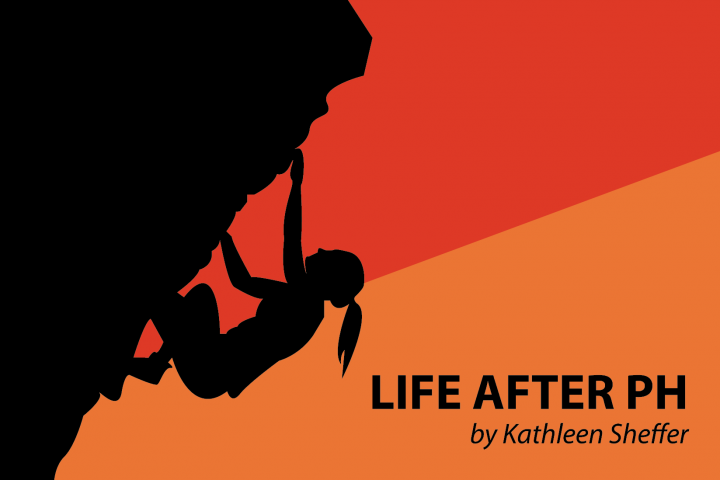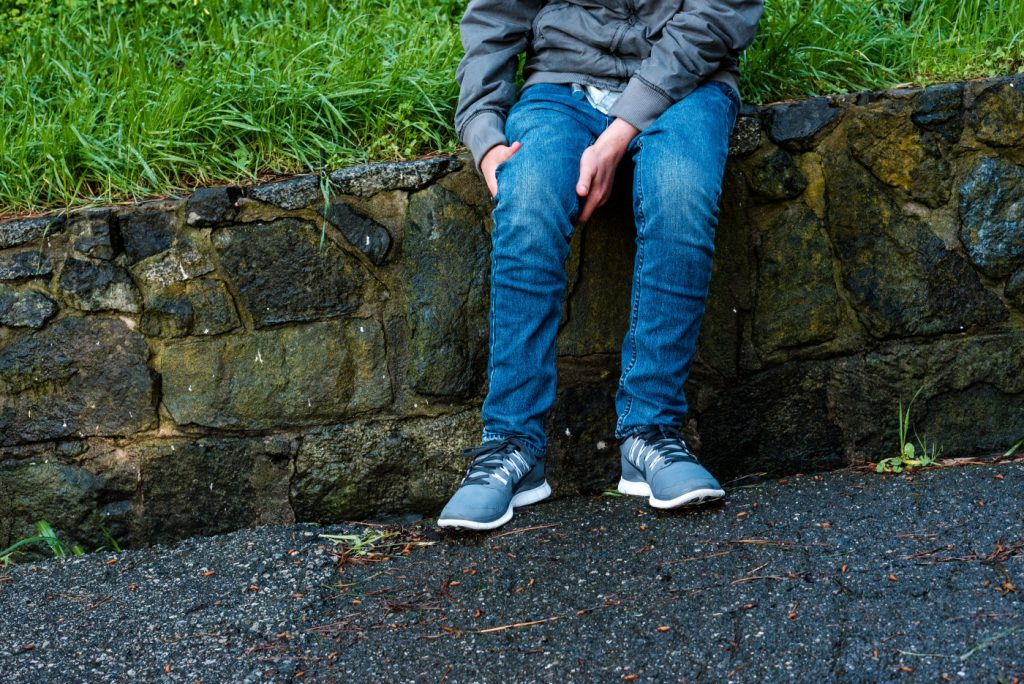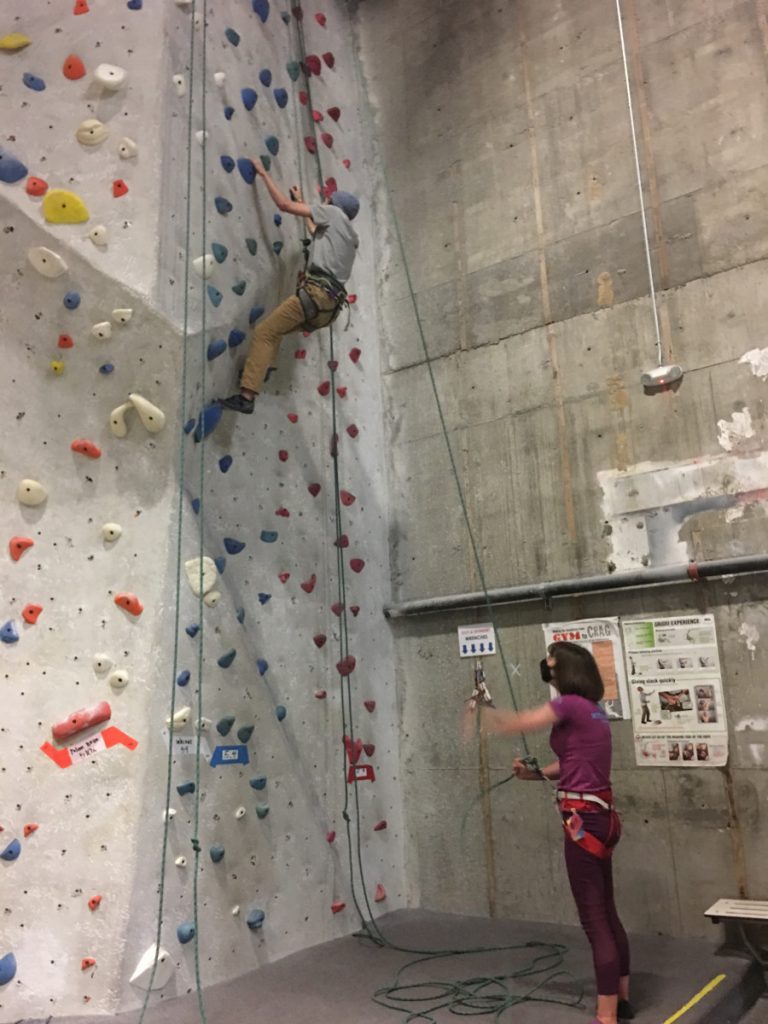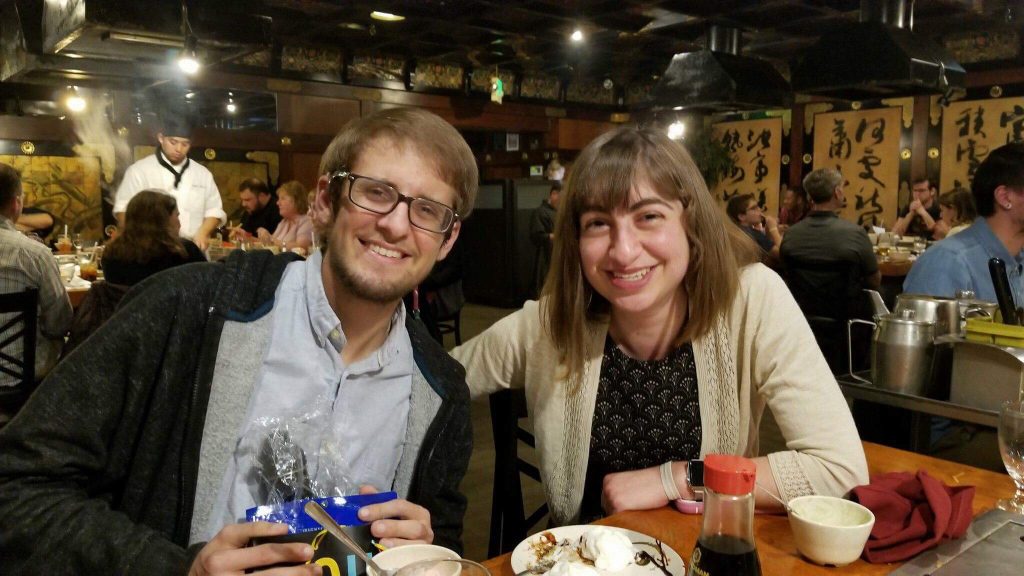Celebrating Bradley Dell and Transplant Anniversaries
Written by |

Brad and I met because he commented on my blog, wherefore I visited his blog and read this piece in which he laments not connecting with a deaf classmate before he lost his own hearing. Brad’s ability to be vulnerable and introspective captured my attention and remains one of my favorite qualities about him. I also learned from his blog that, just like me, Brad was 23 years old and lived in the Bay Area of Northern California. Naturally, I stalked him on Facebook and sent a friend request.
Brad has cystic fibrosis, his deafness a result of an antibiotic used to treat bacterial infections in his lungs. The only center that would consider Brad for a double-lung transplant happened to be a 20-minute walk from my house. We messaged back and forth before he was even on the list. I worried he would not live long enough to receive a transplant and that the example I was setting might cause him and his family even more grief.
His call for transplant came at last, and we met in person at a café while he was living in San Francisco recovering from surgery. I didn’t know what to expect when I met him. I didn’t know how we would communicate face-to-face, and though I realize the absurdity now, I wasn’t even sure if he could speak to me.
He read my phone screen as I dictated and responded with long and thoughtful answers. I can hear my own voice, and I still forget what I’m talking about mid-sentence. Brad is clearly gifted.
At that first of many café meet-ups, Brad explained there should never be an accent mark over the “e” in the word poke. Somehow the word, originating from the Hawaiian verb meaning “to slice or cut,” gained an acute diacritical mark as the raw fish salad became popularized on the mainland in the form of the poke bowl.
It’s a sore subject for Hawaiʻi locals. Chef Mark Noguchi writes that “throwing an accent on poke was just another notch in the belt,” having “witnessed the commodification of Hawaiian culture” throughout his life.
As an editor in Hawaiʻi, Brad learned how to properly spell and punctuate the language under threat of angry letters to the editor. “I liked it because it was a puzzle,” he told me. That’s how Brad approaches life’s hurdles.
Each time Brad comes off belay after climbing, he tells me, “That was hard. I loved it!” We go rock climbing together regularly now, shocking Brad’s parents, and, honestly, both of us as well.
Brad had little interest in physical activity when he received his transplant. Convinced that exercising had played a major part in helping me heal, and grabbing at any idea to distract him while he waited nearly 48 hours for his operation to begin, I promised to force him to go hiking with me after his transplant. I was true to my threat and even took pictures of him grabbing his cramping legs at the top of a hill near our favorite café. I was thrilled. Brad was miserable.
As Brad started feeling better, I started getting more into rock climbing. He thought I was insane. He went from having no interest in the sport to telling me that maybe a year or more after the transplant he would try rock climbing once, just to say he did it. From there, he went on to buy his own climbing shoes.
Brad has cochlear implants now that make it possible for me to communicate with him even when he is at the top of a rock wall and I’m on the ground.
This month, we celebrated the anniversary of his double-lung transplant. Honored to be included, I could not wait to surprise Brad with some accessories for rock climbing to go along with the gym membership his parents gifted.
The restaurant we dined at sang a boisterous version of “Happy Birthday” at several tables throughout the night. I spoke up to tell our waitress that we, too, were celebrating a birthday of sorts — a “rebirthday.” Luckily for Brad and the other guests, she delivered a celebratory slice of cheesecake but skipped the song. I marveled at how beautifully ordinary our dinner was, given all the extraordinary miracles that made it possible.
***
Note: Pulmonary Hypertension News is strictly a news and information website about the disease. It does not provide medical advice, diagnosis, or treatment. This content is not intended to be a substitute for professional medical advice, diagnosis, or treatment. Always seek the advice of your physician or other qualified health provider with any questions you may have regarding a medical condition. Never disregard professional medical advice or delay in seeking it because of something you have read on this website. The opinions expressed in this column are not those of Pulmonary Hypertension News or its parent company, Bionews Services, and are intended to spark discussion about issues pertaining to pulmonary hypertension.








Beth
Such a moving piece Kathleen. Thanks for sharing Brad with us :)
Kathleen Sheffer
Thank you so much, Beth!